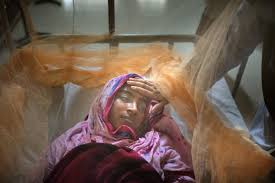The Think Change Forum (TCF), a leading independent think tank dedicated to addressing contemporary challenges, recently convened a panel discussion titled “Is it time for India to resurrect Indian Medical Services?” The discussion, attended by representatives from various sectors of the medical community, underscored the critical need to strengthen India’s public healthcare system through the reintroduction of the Indian Medical Services (IMS).
The panel, comprising esteemed professionals from medical associations, public-sector health institutions, and the private medical sector, delved into the imperative of revitalizing IMS to address the longstanding challenges plaguing India’s healthcare landscape.
The discussion emphasized the pivotal role IMS can play in enhancing the public health sector’s efficacy and restoring trust among citizens. Experts advocated for the establishment of an elite cadre akin to the Indian Administrative Services (IAS) to attract and retain top medical talent and ensure superior healthcare outcomes.
Dr. Sharad Agarwal, National President of the Indian Medical Association (IMA), emphasized that IMS could help restore trust in the public health sector, which has been eroded by the dominance of the private sector. He stressed the importance of equipping IMS with adequate resources and facilities to incentivize doctors to serve communities, even in remote areas.
Dr. Varuna Pathak, former Professor of Gynecology & Obstetrics, Gandhi Medical College, Bhopal, highlighted the systemic failures in healthcare management, attributing them to bureaucratic hurdles rather than healthcare professionals’ shortcomings.
Furthermore, panelists underscored the urgent need to address staffing challenges in the public healthcare system and avert brain drain by providing incentives for skilled doctors to work under IMS.
Dr. Vidur Jyoti, Senior Director & Head, Minimal Access & General Surgery, Max Hospital, Gurgaon, emphasized the necessity of integrated health leadership, combining clinical expertise with management capabilities, to effectively manage healthcare systems.
The discussion also highlighted the importance of preventive healthcare delivery at the primary level to reduce the burden on tertiary care facilities. Panelists advocated for IMS to facilitate seamless coordination between central and state health departments, enabling the formulation of cohesive national healthcare policies.
In proposing a ‘5-Point Agenda’ for IMS implementation, experts emphasized the urgent need for systemic changes to address healthcare disparities and enhance healthcare access for all citizens.
While acknowledging the government’s efforts in healthcare, experts stressed the need for continued systemic reforms to bridge the existing gaps in the healthcare infrastructure.
The panel discussion concluded with a consensus on the urgent need for concerted efforts to resurrect IMS and strengthen India’s public healthcare system, ensuring equitable access to quality healthcare for all citizens.











